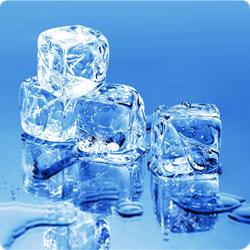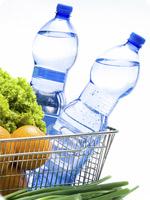Drinking sufficient quantities of water daily can have many significant health benefits. For example, it is well-documented that drinking sufficient amounts of water will help reduce constipation, but most people do not know that drinking eight glasses of water daily decreases the risk of colon cancer by 45%. Drinking enough water can also reduce the risk of bladder cancer (by 50%) and it can potentially even reduce the risk of breast cancer.
Water distribution as health solution
In the book, Your Body’s Many Cries for Water, F. Batmanghelidj, M.D. says every function of the body is monitored and pegged to the efficient flow of water. “Water distribution” is the only way of making sure that not only an adequate amount of water, but its transported elements (hormones, chemical messengers and nutrients) first reach the more vital organs. Water shortage in different areas of the body will manifest varying symptoms, signals, and complications now labeled as diseases. Optimal water intake is a natural solution to these problems.
Dyspeptic pain (stomach upset; a disorder of the digestive function, marked by vague discomfort, heartburn, or nausea) is the most important signal for the human body. It denotes dehydration. It is a thirst signal of the body. For this pain (even when an ulcer is present), water is most probably the only effective substance to give relief. Antacids and other such medications are usually prescribed, but in fact are not good for you and can have serious side effects. Plus, they do not ‘fix’ the problem. When in pain, drink two to three glasses of water and see what happens. Moreover, Dr. Batmanghelidj believes that colitis pain and hiatus hernia are caused by dehydration.
Other conditions that may be a result of dehydration, and can be eased by added water intake are: Rheumatoid arthritis, low back pain, neck pain, anginal pain, headaches, stress, depression, high blood pressure, high cholesterol, excess body weight, asthma and allergies, and many other conditions.
Health norms of water consumption
Your body needs an absolute minimum of six to eight 8-ounce glasses of water each day. The best times to drink water are: one glass, one-half hour before taking food – breakfast, lunch and dinner – and a similar amount 2 ½ hours after each meal. For the sake of not shortchanging your body, 2 more glasses of water should be taken around the heaviest meal or before going to bed.
A salt-free diet is not a good idea. Salt is a most essential ingredient of the body. In their order of importance, oxygen, water, salt and potassium rank as the primary elements for the survival of the human body. The precaution to keep in mind is loss of salt from the body when water intake is increased and salt intake is not. After a few days of taking 6-10 glasses of water a day, you should begin to think of adding some natural sea salt to your diet. About 27 percent of the salt content of the body is stored in the bones in the form of crystals. It is said that salt crystals are naturally used to make bones hard. Thus salt deficiency in the body also could be responsible for the development of osteoporosis. Salt will be taken out of the bones to maintain its vital normal levels in the blood.
Dr. Batmanghelidj suggests a rule of thumb for daily salt intake. For every 10 glasses of water (about two quarts), one should add to the diet about ½ teaspoon of natural sea salt per day.
Good health is the result of a good balance in the body, not only good nutrition, but a balance of water and salt intake.



